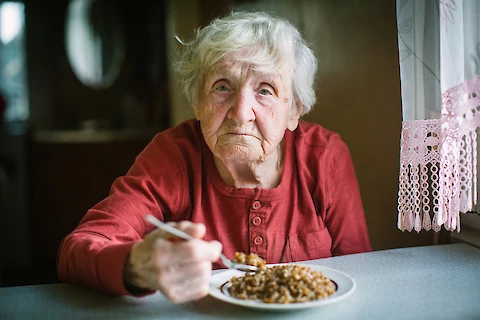
Eating disorders are not exclusive to the young; they plague our senior loved ones as well. Unfortunately, these disorders often go unnoticed in this age group, remaining undiagnosed or untreated. Early detection and intervention are integral to managing these health issues, yet they often rely on the vigilance of caregivers and family members. Discover insights into the signs and symptoms of various eating disorders in the elderly, learn the unique challenges they face, and get advice on sensitive discussions about these illnesses.
Seniors and Eating Disorders
Eating disorders are complex mental health conditions that impact a person's relationship with food and their body image. They can manifest in several ways, including anorexia nervosa, bulimia, and binge eating disorder. What's particularly challenging for seniors is that these disorders often intertwine with chronic diseases or mental health issues commonly associated with aging. Furthermore, numerous misconceptions exist, such as the notion that older adults are immune to these disorders. This makes it even more crucial for caregivers to be educated and vigilant.
Signs and Symptoms of Eating Disorders in Seniors
Detecting eating disorders in seniors can be complex, as some symptoms might be mistaken for natural aspects of aging or side effects of medication. Physical signs include rapid weight loss or gain, fatigue, and constant complaints about aches and pains. Additionally, changes in eating habits, such as avoiding meals or hoarding food, could indicate an eating disorder. Emotional signs, such as feelings of depression, anxiety, or obsessions over their diet and body image, are also important to notice. Remember, these signs may not be apparent immediately and may require careful observation over time.
The Role of Caregivers in Identifying and Addressing Eating Disorders
As a caregiver, you are instrumental in identifying and addressing any potential eating disorders in your senior loved ones. It's essential to approach the topic with empathy, understanding, and patience. Instead of confronting them directly, try to have an open conversation about their eating habits and feelings. While it might be challenging, emphasizing their health and well-being can help facilitate these conversations.
When you suspect your loved one is suffering from an eating disorder, it's important to seek help from healthcare professionals. Eating disorders can have severe health implications if left untreated, and the earlier the diagnosis, the better the chances of managing the condition effectively.
Seeking Professional Help
Treating eating disorders in seniors requires a comprehensive approach that often involves the collaboration of various healthcare professionals, including dieticians, therapists, and physicians. Treatment plans often include nutrition counseling, cognitive-behavioral therapy, and, in some cases, medication. This professional support can drastically improve recovery outcomes and help seniors regain control over their lives.
Connect With Senior Helpers Harrisburg
Eating disorders in seniors should not be overlooked. Early detection and intervention significantly improve the prospect of recovery and help prevent further health complications. We urge those caring for seniors to stay vigilant, educate themselves, and take action when their loved ones are in need.
Senior Helpers Harrisburg offers a range of services designed to provide comprehensive care for seniors in Harrisburg, Camp Hill, Mechanicsburg, Palmyra, and Dauphin County. Our team is committed to assisting families in managing these challenging situations by offering support and guidance every step of the way. Contact us if you require professional assistance in managing eating disorders in your elderly loved ones.